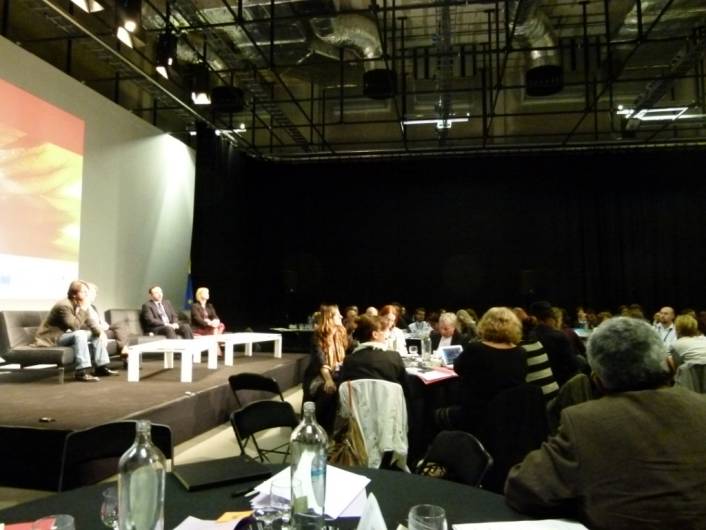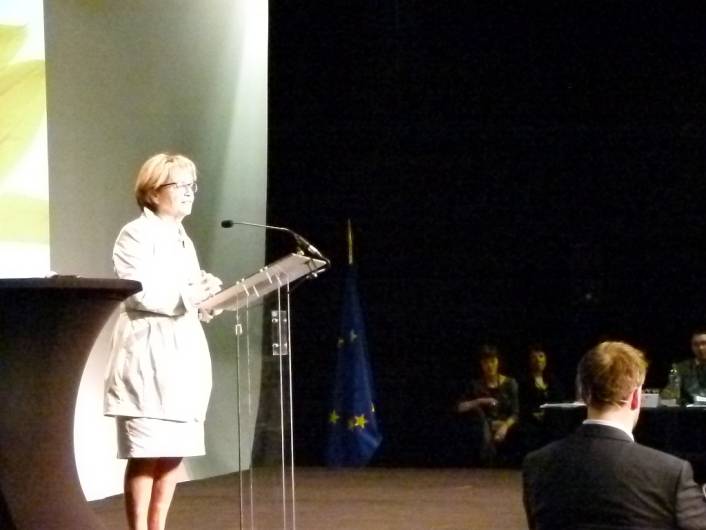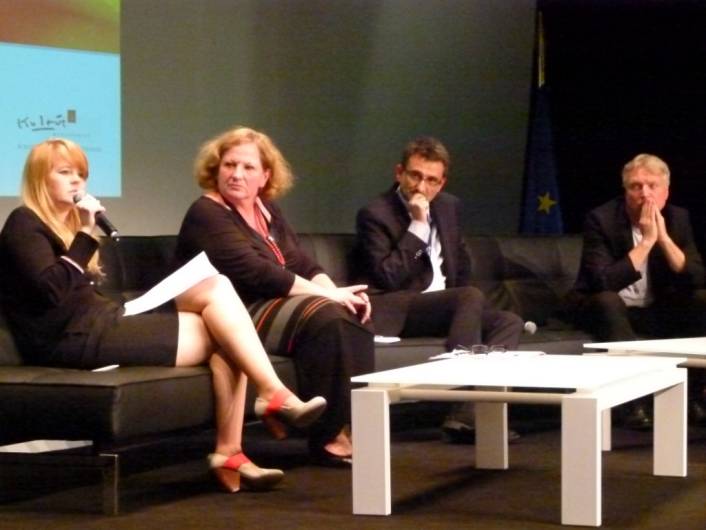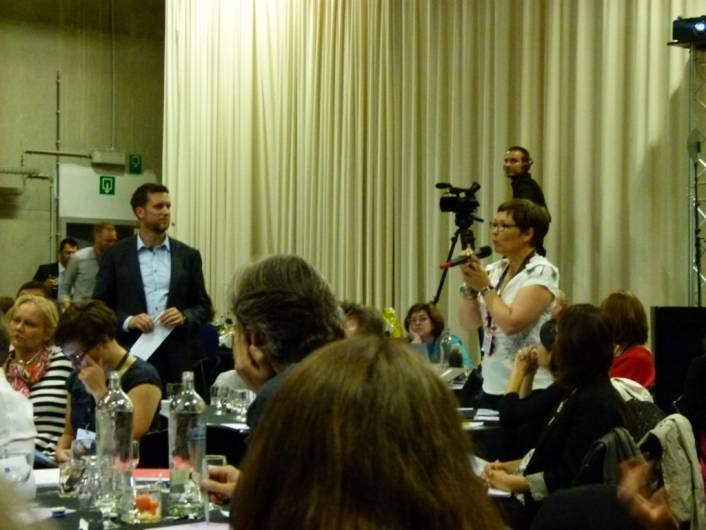News & Activities
EHfC | 6 June 2012 | Update from the Team Culture 2012 Conference
The Role of Culture in a Time of Crisis: Update from the Team Culture Conference
6 June 2012 @ THE EGG, BRUSSELS, BELGIUM


On 6 June 2012, in the framework of the Danish Presidency of the Council of the European Union, the Danish Minister of Culture Uffe Elbæk, European Commission Commissioner for Education, Culture, Multilingualism, Sport, Media and Youth Androulla Vassiliou, and Team Culture 2012 hosted a conference on the role of culture in a time of crisis. The event brought together European decision makers and representatives from various cultural sectors to discuss this vital topic from a range of perspectives. To inspire the day’s dialogue, Uffe Elbæk stated: “Europe is facing a severe economic crisis and the EU and national governments throughout Europe are searching for a solution. As part of the solution, we should turn to culture as a source of creativity, innovation and hope for the future.”
Team Culture was founded as a ‘cultural task force’ by the Danish Minister of Culture Uffe Elbæk in early 2012, bringing together various leaders in the cultural sector to investigate the theme of the conference, culture’s role in a time of crisis. Throughout the day-long symposium, Team Culture members presented case studies investigating the different methods in which culture could serve as a catalyst for the societal development of Europe in the context of the current economic crisis. The meeting took place at the EGG, a space dedicated to serving as an incubator for creativity and innovation in the arts, culture, and sciences. It was the perfect opportunity for the European House for Culture (EHfC) and the European Festivals Association (EFA) to explore this key theme with leaders in the cultural sector from all over Europe.
The dialogue, structured with alternating case study presentations and round table discussions, was developed along three different themes: Cultural Cooperation and Inspiration, Citizenship and Democratic Involvement, and the Potential of the Creative Sectors and Cultural Innovation. Video remarks by President of the European Council Herman Van Rompuy encouraged the discussion by reminding the participants that Europe is not a museum, but a vibrant and living continent where culture and creativity are more important than ever.
Highlights of the event included presentations by Neil MacGregor, Josephine Green, and Stojan Pelko. MacGregor, the Director of the British Museum, spoke about cultural institutions and their role in European citizenship. Presenting cases of exhibitions in major cultural institutions on Islam and Hinduism and their links to past and present European culture, he reminded the group that Europeans must acknowledge and celebrate their diverse cultures in order to realize the full potential of the European project.
Stojan Pelko, writer and former State Secretary of Culture in Slovenia, presented his thoughtson the importance of space to the ongoing dialogue between the civil sector and the political sphere. To increase both the amount and depth of citizen participation, the physical space must be opened on an institutional level to allow for physical meetings between the various parties. To this end, he proposed a ‘cultural space program’ for Europe.
Raising questions on a future narrative for the development of Europe,Josephine Green,professor at the School of Design Northumbria University and an Innovation and Change consultant, asked participants to imagine new models for change. Her presentationstressed the need for a new narrative, or more specifically narratives, to replace the linear/vertical model of development that exists in Europe and much of the world today. Green’s case study, presented with founder and director of the Space Makers Agency Dougald Hine, revealed a new narrative for development that is not present in the current centralized/decentralized paradigm: a distributed network. The case presented, Brixton Village, reveals a structure more suitable to the digitally connected world, reorganizing the power hierarchy into a nodal matrix, placing the citizen in a more pivotal role.
The event offered a great opportunity to meet important leaders involved with the cultural sector across Europe and the world. A highlight reel of the event can be found here. The speeches from the conference are also posted to Team Culture’s Youtube channel. To close, EFA and the EHfC would like to share the words ofDoris Pack, Member of the European Parliament and Chair of the Committee on Culture and Education. She stated that creating a critical mass of believing in culture as the core of the European project begins with education, not only in schools, but also with friends, neighbors, and politicians. Her words urged us all to invite local business leaders and politicians to our cultural events and show to them that culture truly creates the soul of Europe. Let’s follow her advice and work together to bring culture to a wider audience and to increase the dialogue with the politicians on our turf, offering them the true value of the cultural sector: the experience.


Written by Zachery Bishop
18 June 2012
On behalf of the European Festivals Association and the European House for Culture



